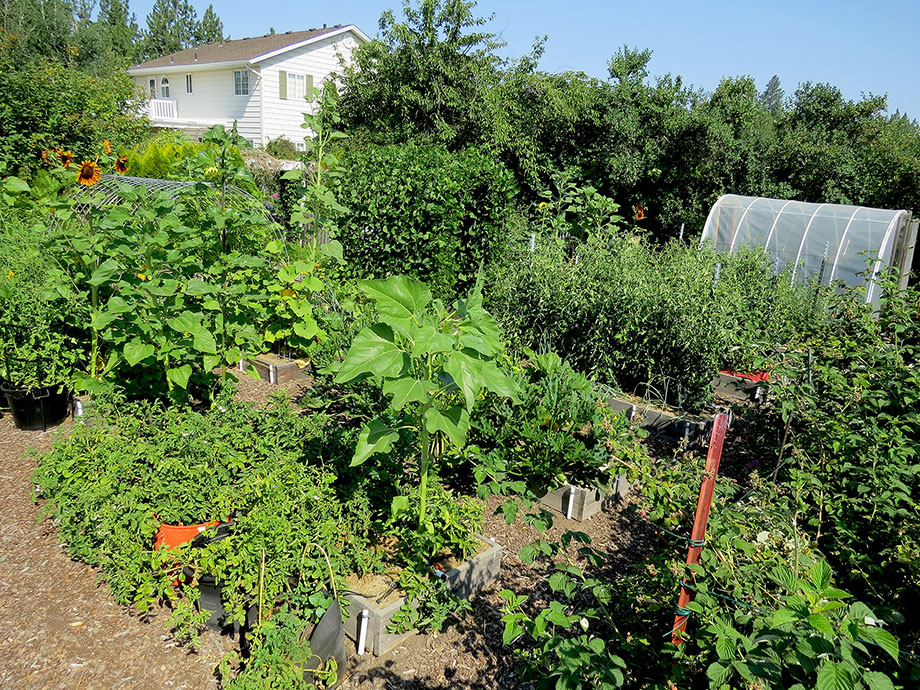Column: Garden Lessons

Do you ever think about the garden lessons you’ve learned over the ears? Every time fall rolls around, that is exactly what I like to do. I especially like to address this during the current growing season. This is important for all of us, because that’s how we gardeners become even better gardeners!
I hope you’ll find some good wisdom in here, which you can apply to your own gardening skills.
by Susan Mulvihill
Every fall, I tend to reflect back on the important garden lessons I’ve learned. I thought it would be fun to share my top 10 with you today.
- If you meet the needs of your plants, they are going to grow well and have minimal or no problems. This includes providing them with the right amount of sunlight, moisture, space and nutrients. It makes such a difference. In addition, don’t engage in “zonal denial” by buying plants that aren’t suitable for your hardiness zone. Most of Spokane is in zone 6a and outlying areas tend to be in zone 5b, and that’s all there is to it.
- I used to clean up all of the flower beds at the end of the season so they would look tidy. I’ve since learned that leaving plants in place provides cover for beneficial bugs to hibernate in and seeds for the birds.
- Plant lots of flowers to attract bees, other pollinators and beneficial insects. This simple act will increase the diversity in your garden plus you’ll have some cut flowers to enjoy indoors, too.
- Always carefully examine plants before you buy them. Sometimes there might be damaging insects or eggs on the foliage or signs of disease. I can’t tell you how many times people have told me, “I never had this problem in my garden until I brought home a new plant.”
- If a friend offers to give you some plants, make sure you know which ones they want to give you first. When we started landscaping our back yard about 30 years ago, a friend brought me some plants. I recall her saying, “this one grows all over the place in my yard but it has the prettiest yellow flowers.” I assured her that I wasn’t worried in the least. After all, we had plenty of room to fill. It turns out those yellow-flowered plants have been the bane of my existence because they’re now growing everywhere. Which plant did she give me? Buttercups.
- Even though the act of gardening is a learning process, take advantage of educational programs as well. I have attended classes on so many horticultural subjects over the years. They really have helped me expand my knowledge base. Look for classes put on by your local Master Gardener program, garden clubs or at your nearby library branch.
- Share what you’ve learned with others. Have you got a new neighbor or a friend who wants to get into gardening? If you reflect back on how you’ve learned to grow plants, chances are someone helped you along the way. Pay it forward.
- Keep a garden journal every year and jot down useful notes such as which plants grew well and if you encountered any problems. If the latter occurred, include how you addressed them. That way, you’ll know what to do next year or try other strategies. Your journal notes are so valuable.
- Remember to share your excess produce with others or plant extra crops specifically for donating. I love giving our extra green beans, winter squash, tomatoes and zucchini to the food bank. It’s a positive way to help folks within the community.
- Enjoy the process of growing a garden. The planning, seed-shopping, planting and tending are equally important components of it. And if something didn’t go right, remember that there’s always next year. That’s because you can put your garden wisdom to work.
What about other garden lessons? Well, there will be plenty more as I garden in the coming years!
Susan Mulvihill is author of “The Vegetable Garden Problem Solver Handbook” and “The Vegetable Garden Pest Handbook.” She can be reached at Susan@SusansintheGarden.com. Watch Susan’s videos at youtube.com/susansinthegarden.

